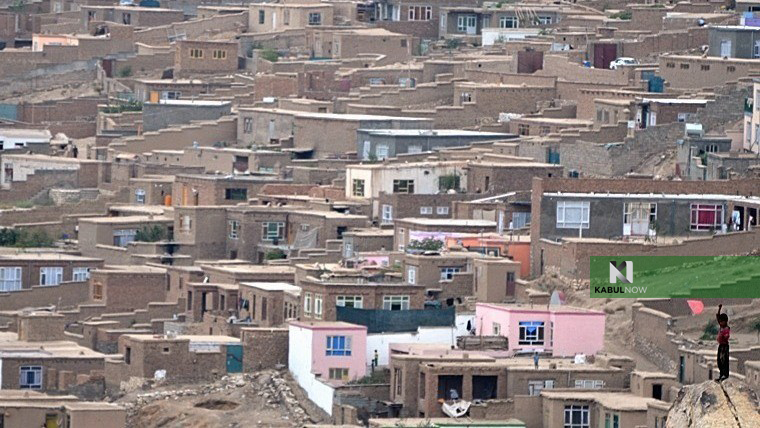Faisal, an employee of a private company, who lives in Khwaja Boghra neighborhood of Khairkhana, says he lives in continuous state of fear of being confronted with robbers. “I feel fear when I leave my work for my home a little bit late,” he stated.
Located in the northern neighborhood of the capital Kabul, Khairkhana is one of the populated areas of Kabul which most recently is reported to be rampant with organized crime such as robbery, pickpocketing and kidnap for ransom. Etilaat-e-Roz’s reporter Hamid Farhadi has visited the area. He has talked to a number of residents, and asked them to share the story of how widespread organized crime has become in the area and how worried people are.
Residents of Khairkhana neighborhood say robbery, abduction, and murder are on the rise as recently as last three months. A young man was killed by unknown armed men just weeks earlier. Eyewitnesses say a physician had been abducted by unknown armed men in return for 200,000 dollars ransom but he was released after Kabul police conducted a successful operation.
“Two months ago, a shopkeeper all of a sudden fell into argument with a customer. Moments later, the customer, accompanied by several armed men, came back and beat the shopkeeper and his attendants. They smashed glass of his shop,” a local shopkeeper says.
In another tragic case, a child was murdered. He was reportedly abducted by two teenagers. “Robbers stopped me and asked to give them my cell-phone. They were armed, and I could nothing, just consented to their demands,” says a young man who recalled his encounter with armed robbers.
Bullying, blackmailing, and bootlegging happen on daily basis in Khairkhana. A nurse at a private hospital in Sar-e-Kotal area of this neighborhood says he was threatened by armed attendants of a patient who had been wounded and brought to the hospital in a night. “We will kill all of you if you inform the police,” the nurse, quoting the culprits, told Etilaat-e-Roz.
Residents of Khairkhana say over-population, presence of strongmen and local commanders in the area coupled with poverty, unemployment and increasing use of drugs are major factors that have driven the area insecure and rampant with organized crime. They believe that some culprits are under the protection of local strongmen and jihadist figures.
Fahim, a local councilor in the area, believes that most robbers are drug addicted. “The youths,” he added, “hang out together, drink, gamble, and do robbery whenever they need money.”
Refused to be identified, a young man who used to be member of an armed gang, describes poverty and unemployment as major reason behind organized crime. He, now a driver in a private company, says some police officers are accomplice with culprits.
People also complain that police forces do not make regular patrols in insecure neighborhoods of Khairkhana. Expressing concern over increasing insecurity and organized crime, Tariq Azim, a social activist, believes that police officials do not bother themselves to find out a permanent solution and end robbery in the area.
However, Ferdwas Faramarz, spokesperson for Kabul Police, says that a serious crackdown is underway to address the issue. He added that in the last nine months over 200 criminals have been arrested on substantiated charges of drug sell, and theft in different parts of Kabul.
Daily life has been largely disturbed by insecurity in Khairkhana to the extent that people cannot go to their businesses or move around freely during nights. Zabih, a street vendor who has been selling fruits for 17 years, cannot maintain his business during nights as he fears to be targeted by robbers. Shopkeepers in Lycee Mariam, another neighborhood in Khairkhana, close their shops before the night falls.
Yaqub Rasuli, a member of a cultural center in Khiarkhana, underlines that people cannot dare open cultural houses for they are convinced that on account of organized crime Khairkhana is not a proper area for cultural activities.




